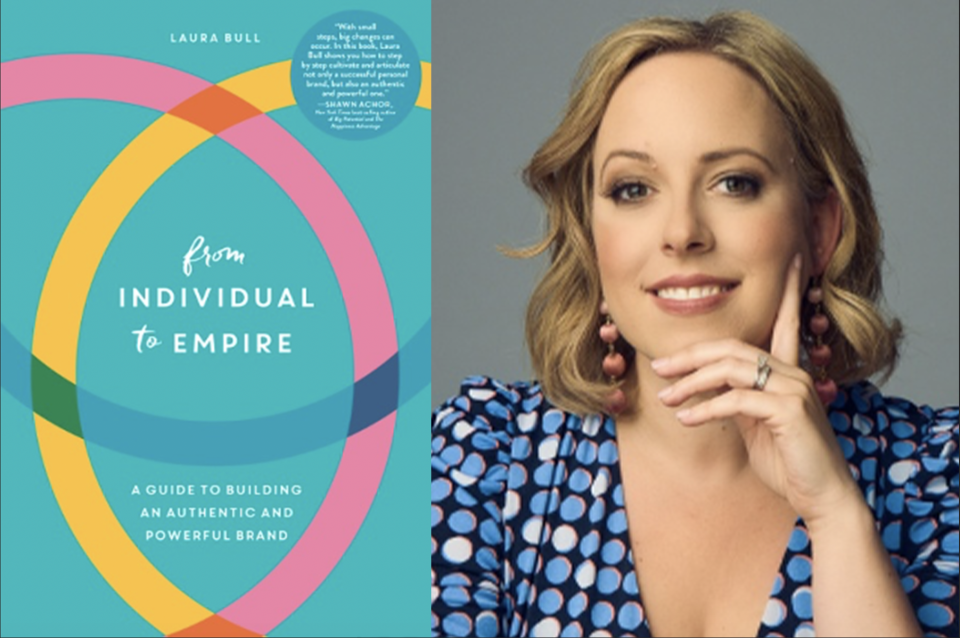By Laura Bull | Contributor
Ten years ago, I had no idea what I would be doing today. I had just left my corporate gig at the tail end of the Great Recession and had opened my consultancy firm without a single client. It was a scary yet liberating time. I had spent the majority of my career working in the music business marketing global superstars, and although I learned everything about transforming a person into a business, I had never done it for myself.
Being your own boss is hard. Working from home is hard, especially once you add little ones to the mix. You will lose sleep and don’t let anyone tell you otherwise. However, after a trying yet successful decade running my own business, becoming an adjunct professor, and publishing my first book, I can offer some advice to all you mompreneurs that will hopefully help you sleep a little easier.
Marketing is not branding.
Whether you are thinking about picking up a side hustle or creating a full-time income earner, you need to develop a solid brand identity. Brand identity will be your company’s most valuable asset. It will dictate every decision you make regarding the form your product or service takes, distribution channels, marketing strategies, and even who your consumer may be. It tells your team and your investors who you are and what you stand for. And, just like Nike, it should remain consistent through the life of the company.
Marketing is what you want to say for the next twenty days; branding is what you want to say for the next twenty years. Think of it this way, you can have a number one hit with a great marketing campaign, but you can’t have a number one career without a great brand strategy. So, instead of jumping headfirst into building a business plan or approaching investors, invest real time and energy into developing a strong brand identity that is not only authentic but also competitive in the marketplace. Doing so will limit second-guessing and protect your ego when you get into the day to day stuff.
Passion is what you love to do; the purpose is why you do it.
As the study of positive psychology gains ground across the country, these two terms are becoming commonplace in business. However, I find many confuse the two, so it’s worth pointing out the differences so you can define both your passion and purpose early on.
Passion is loving what you do; it helps keep you energized and positive. Purpose, on the other hand, is a deep-rooted reason why you are doing what you do, almost always with an altruistic angle of helping others. Although passion is just as important to a business and developing a high skill level, the truth is that investors, clients, and consumers are going to relate and respond to a strong purpose.
For instance, there are tens of thousands of people who love to paint; this is passion. These artists could paint anything from landscapes to graffiti murals. They could teach painting techniques, critique art from other painters, or run a studio. These are all viable business endeavors, but what exactly are they selling. Now, consider someone who loves painting whose purpose is to capture early moments between a mother and her newborn. This painter is now able to sell a moment in time, instead of just a painting, thereby allowing a connection with an audience and future growth.
Having a clear sense of both passion and purpose are important to any business and should be incorporated into the brand identity. But I’ll share a little secret that’ll really take you the extra mile. Aim to develop a passion for your purpose because only then will you develop perseverance to carry you through the ups and downs of the coming years.
Your personality is your narrative.
In a traditional branding model, a company will put personality traits onto an inanimate object to sell that object to likeminded individuals. For instance, the marketing team behind the Jeep Wrangler associates that product with outdoorsy, fun, and spontaneous to appeal to their target market.
But we live in the Age of the Narrative, where people are getting bombarded with messages and potential consumers crave authenticity. A strong narrative alone can sell a product. So, instead of creating a message based on what you think the consumer wants to hear, simply give them one that already exists. By incorporating your personality traits and values into your brand identity you ensure authenticity and long-term consistency. Win-win!
Now, I’m not saying creating a brand identity is easy, but what I am saying is that your business will operate more smoothly and you’ll have fewer headaches because you’ve taken this crucial first step. For some it takes weeks, for others, it may take months. There is no right or wrong answer. And, if you get to a place of frustration, know that our brains are more efficient and creative when we are in a positive state. So, turn up the music, go for a walk…or better yet, just sleep on it.
from INDIVIDUAL TO EMPIRE: A Guide to Building An Authentic and Powerful Brand by Laura Bull
 $17.95 | ISBN 13: 978-1-63299-261-1
$17.95 | ISBN 13: 978-1-63299-261-1
$8.99 | eBook ISBN: 978-1-63299-262-8 | January 27, 2020
Business & Economics/ Personal Success
RIVER GROVE BOOKS, River Grove Press
Available through Amazon.com, Ingram, and laurabull.com
ABOUT LAURA BULL
 Laura Bull spent ten years with Sony Music Entertainment where she became one of the company’s youngest executives at the age of twenty-eight. During her tenure, she spearheaded artist development and marketing for globally recognized brands including Carrie Underwood, Brad Paisley, and Johnny Cash among hundreds of other artists from Arista, RCA, Columbia, Epic, and Monument records. A veteran of the music industry, she has served for more than a decade on the National Advisory Board for Musician’s On Call.
Laura Bull spent ten years with Sony Music Entertainment where she became one of the company’s youngest executives at the age of twenty-eight. During her tenure, she spearheaded artist development and marketing for globally recognized brands including Carrie Underwood, Brad Paisley, and Johnny Cash among hundreds of other artists from Arista, RCA, Columbia, Epic, and Monument records. A veteran of the music industry, she has served for more than a decade on the National Advisory Board for Musician’s On Call.
She is an expert who specializes in marketing and transforming people into viable brands by offering insurmountable knowledge to teach others what it takes to become a powerful “influencer.” Everyone in the marketing arena keeps discussing the power of influencers, but no one is discussing how an influencer becomes powerful. Now she redefines the term “influencer” by expanding its scope offline, highlights positive psychology principles in terms of branding, and reveals the proprietary Brand Matrix to help entrepreneurs discover their authentic and competitive brand.
A consultant and speaker, Bull has been an adjunct professor for six years teaching disciplines in marketing and music business at multiple colleges and universities including SMU’s Temerlin Advertising Institute. She has a BBA from Belmont University’s Mike Curb School of Music Business and a Master of Liberal Studies from Southern Methodist University.
She currently resides in Dallas with her husband and daughter.


